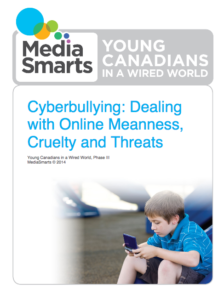For many years, online learning has been a kind of “Wild West” without common standards, best practices or large scale research into what was actually happening in online programs.
In the last several years, several organizations have taken up this important work, giving us a clearer picture of trends and best practices for online programs. The following is a list I’ve started containing references to mainly US and Canadian studies. I welcome your suggestions in the comments below.
Here’s a little taste of research and best practices in Online Learning …

a) iNACOL Standards for Quality Online Courses
iNACOL (International Association for K 12 Online Learning) has some of the most comprehensive guides for online learning that exist. Whether it’s Quality Online Course Standards (pictured above), or Standards for Quality Online Teaching (and Programs), this organization has a wealth of information to use in your practice.
The PDFs are easy to read and understand, despite their somewhat intimidating names! The link above also comes with some sample rubrics to help you identify areas for growth in your online courses.

b) State of the Nation: K 12 Elearning in Canada
Updated each year, Michael Barbour (and research team) have compiled an in-depth report “examining the current state of all forms of K-12 e-learning (i.e., distance, online and blended learning) in Canada.”

c) MediaSmarts: Young Canadians in a Wired World
Young Canadians in a World World tracks and investigates the behaviours, attitudes, and opinions of Canadian children and youth with respect to their use of the Internet. Be sure to read the Cyberbullying research, pictured above.

d) Journal of Online Learning Research
Taken from their website … “The Journal of Online Learning Research (JOLR) is a peer-reviewed, international journal devoted to the theoretical, empirical, and pragmatic understanding of technologies and their impact on primary and secondary pedagogy and policy in primary and secondary (K-12) online and blended environments.”

e) Pew (Internet) Research
The Pew Research Center conducts “public opinion polling, demographic research, media content analysis and other empirical social science research” (from their website). They have surveyed on a wide range of aspects of online behaviours and I know you’ll find the site fascinating.

The Takeaway
I hope you found these links useful. Each of them contains so many different aspects of online learning, from course design standards to the behaviour of our young people online.
The goal for all of us, I think, is to be informed about what’s happening and to build our courses with the best practices shared from around the world.






Leave A Comment